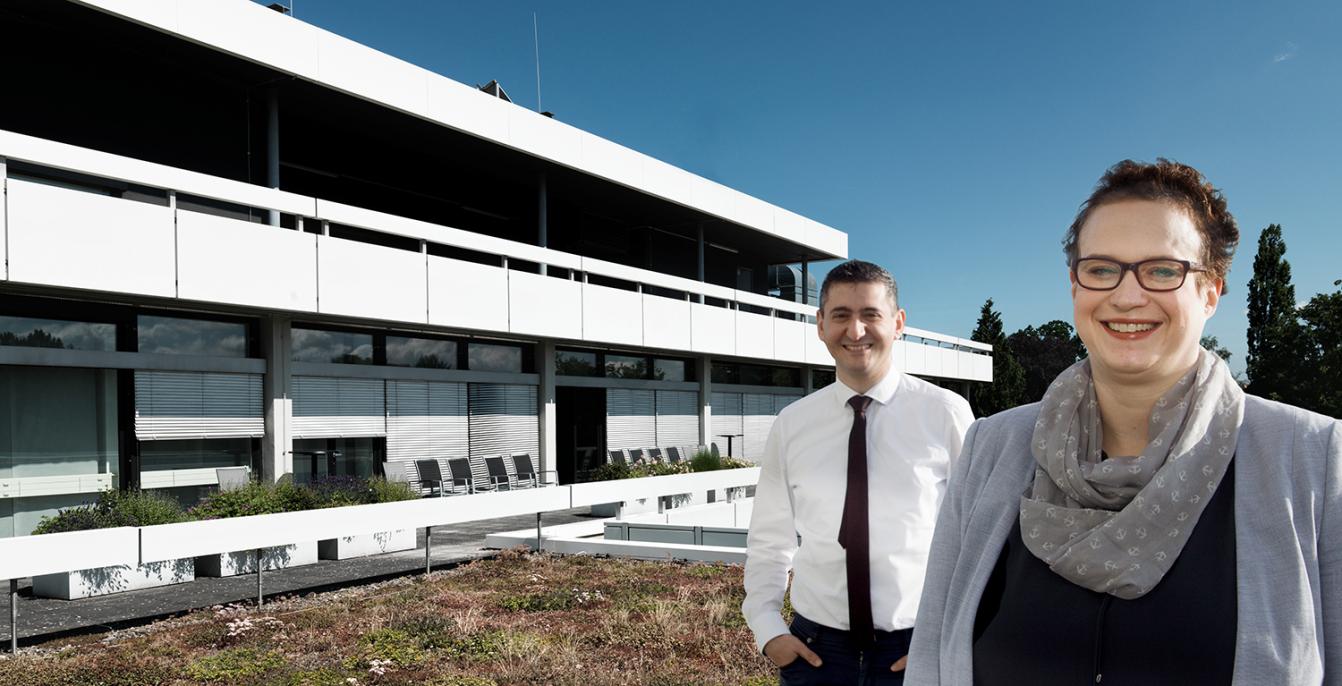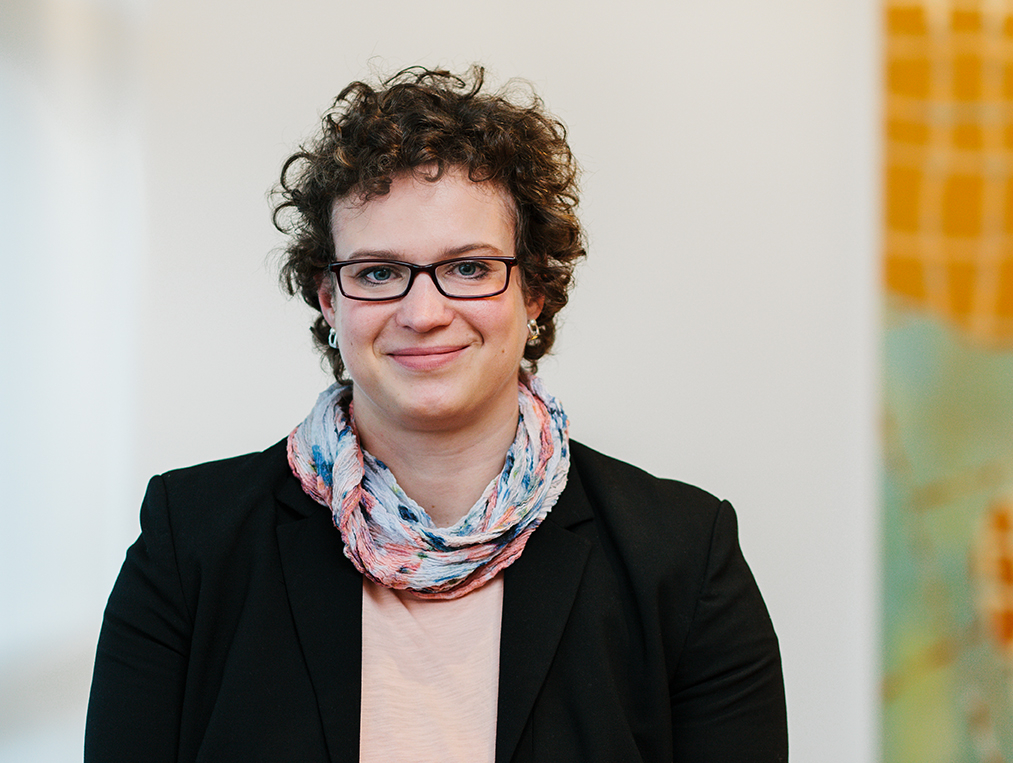
Global health in times of high mobility
Green light for 15 projects under the global call for interdisciplinary research on "Mobility – Global Medicine and Health Research". The following interview surrounds first experiences with a funding offer that has unintentionally become topical in the wake of the corona pandemic.
There has been a keen response to the call on global health issues launched jointly with the partner foundations Fundación La Caixa (Spain), Novo Nordisk Fonden (Denmark) und Wellcome Trust (UK). 82 project teams applied in the first round, from which an international panel of experts selected 15 to receive so-called preparatory grants.
A key requirement of the call Mobility – Global Medicine and Health Research is that the projects should enable researchers from low and middle income countries to work in symmetrical partnerships with teams from high income countries. Topics range from how to deal with the mental and physical stress suffered by displaced mothers to research on the link between cholera epidemics and the rural exodus triggered by environmental disasters.
In this interview, Cora Schaffert-Ziegenbalg and Selahattin Danisman, who are in charge of the call at the Volkswagen Foundation, describe how they experienced the first application round.
When the call for proposals was published in January 2020, the current global pandemic was not yet an issue – but by the deadline in April it most certainly was. Has corona changed the view on mobility and global health? Did COVID-19 play a role in the first applications?
Danisman: Unfortunately, global pandemics have not only been an issue since the appearance of corona. In the recent past, the Zika virus or the so-called swine flu, for example, have shown what kind of challenges can arise from the high mobility of people in combination with infectious diseases. Most researchers in the field were in no doubt that the next pandemic was bound to come at some time or other. In this sense, therefore, corona has not changed the view on the topic, but demonstrably underlined the importance of research and the development of solutions.

Dr. Selahattin Danisman
Schaffert-Ziegenbalg: We were, however, very happy that we published the call at this particular time. It opened an opportunity for scientists to look at the COVID-19 pandemic from a "mobility" perspective. In spring, it was one of the very few funding programs on offer that permitted the pandemic to be investigated from a global perspective. And yes, about a quarter of the applications for preparatory grants dealt directly with COVID-19. They were often interdisciplinary, being located between the life sciences and the social sciences or humanities. It will be interesting to see e which of these projects will prevail in the second step, after submission of the full proposal.
And apart from the COVID-19 topic?
Danisman: We don’t want to look at the issue of mobility and global health only from the perspective of the current pandemic or infection biology; nor do we want to focus exclusively on how the Global North can protect itself against infectious diseases. There are many other issues, for example the problems of internally displaced persons and people forced to flee from their home country who suffer great psychological stress. Similarly, noncommunicable diseases affecting migrants such as diabetes or cancer are less frequently detected or treated , which naturally leads to far greater problems in the long term. And then there are also many diseases which don’t affect us in Europe – at least not yet – but for which we urgently need solutions. In this connection, several so-called "neglected tropical diseases" come to mind. Global health and mobility is a broad field, and the applications we have received under this call reflect this very well..
"Mobility" provides for special constellations of cooperation. What has been the response from the scientific community, and what do they think of the "preparatory grants"?
Schaffert-Ziegenbalg: We all want a strengthening of South-South cooperation and that North-South cooperationtakes place on a much more equal footing. Research on certain topics should be initiated and carried out by those countries that are actually affected.

Dr. Cora Schaffert-Ziegenbalg
The community's response to the kinds of constellations we are targeting is positive. Many researchers in Europe who cooperate with institutions from the Global South need no convincing when it comes to strengthening local capacities, and they know how meaningful it is to cooperate internationally as equal partners. They welcome the fact that, as an independent foundation, we have the opportunity to provide funding for their colleagues in the Global South. Of course, this kind of cooperation is also viewed very positively by researchers in the target regions. They welcome the prospect of being able to explore the different perspectives of middle- and low-income countries and to include such aspects in their research.
The preparatory grants offer all participants the opportunity for an intensive exchange of ideas and time to jointly prepare a full proposal. Since this preparatory phase lasts a full eight months, there is even a possibility in some projects to carry out first small pilot studies. This is also very much welcomed.
Danisman: We definitely want to avoid what is known as "helicopter science", where typically researchers from Europe or the USA fly in, collect data and then fly out again to publish their research at home – leaving the people on the spot with little or no gain. In the discussions among experts that took place in the run-up to the call, there was also a strong plea to involve local infrastructures, NGOs and decision-makers in the research process. Fortunately, this was taken up by many applicants.
Did the first round of applications meet your expectations? What would you like to have seen more of?
Schaffert-Ziegenbalg: We are really very satisfied. Many of the outline proposals were particularly convincing because they also included non-academic partners from the Global South and because of their interdisciplinary approach. It is also good that proposals often covered three or more world regions. Going forward, we hope that a truly symmetrical partnership will be realized in the projects and that the added value of interdisciplinary cooperation between the life sciences, the social sciences and the humanities will be more strongly emphasized. The full proposals could possibly also devote even more room to cooperation with local stakeholders. And last but not least, applicants should make it clear that they have taken aspects of data protection and ethics into account.
Four European foundations have joined forces in "Mobility". What has the cooperation been like?
Schaffert-Ziegenbalg: Like a real partnership! Novo Nordisk from Denmark has taken the lead in this call and provided us with some stimulating insights – which we experienced also from other partners concerned. We all stand to benefit from each other when it comes to review processes, compiling information for applicants, the virtual interface of application portals, and communication with the reviewers. The coordination is running smoothly, and if there is a hitch we quickly find a solution that everyone is satisfied with. We’re looking forward very much to meeting again with our colleagues from the Wellcome Trust, "la Caixa" and the Novo Nordisk Foundation in autumn 2021, when the presentations on the full proposals are to take place in London.
Do you already know what happens after full grants have been approved? Is there going to be a second round?
Danisman: We will first wait until the joint review of the full proposals has taken place. Then we can discuss both internally and with the partner foundations how we want to continue working together on the topic of Global Health. This could again be about mobility, but it doesn’t have to be. As far as Global Health is concerned, there is – unfortunately – no shortage of challenges to be addressed by science and society and in cooperation between rich and less rich countries.
